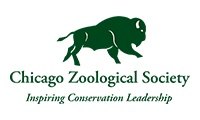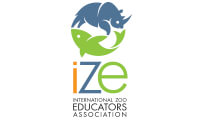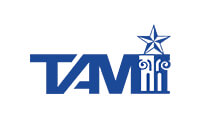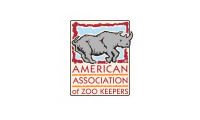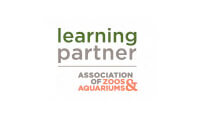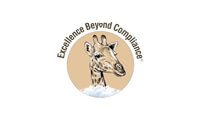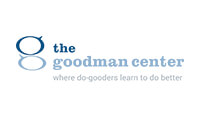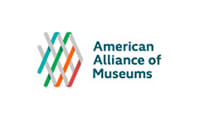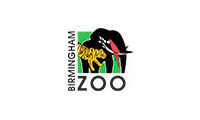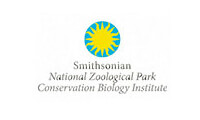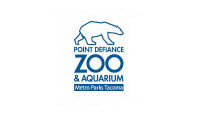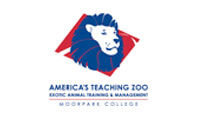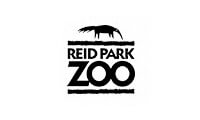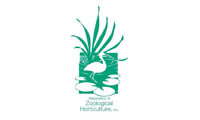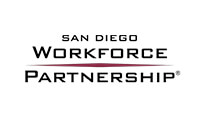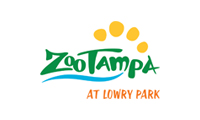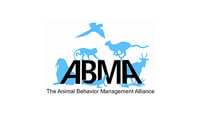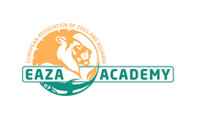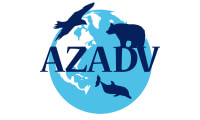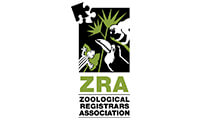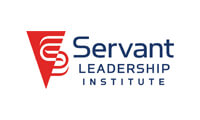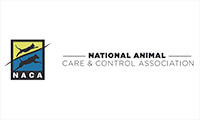Getting Better All the Time
New Beginnings and the Animal Welfare Act—Action Steps to Help You Help Wildlife
By James F. Gesualdi
To keep ahead, each one of us, no matter what our task, must search for new and better methods—for even that which we now do well must be done better tomorrow.
—James F. Bell
The beginning is the most important part of the work.
—Plato
The beginning is always today.
—Mary Wollstonecraft Shelley
The new beginning bestowed upon us in this moment is the most precious thing ever because it is all we have to work with, in and through.
Whatever the circumstances, environment or times present, each moment is always a new beginning. As such, and mindful of this, we are empowered to use this moment and new beginning to move ourselves and the world around us towards the good we intend to create, sustain, nurture and grow.
Awareness of the power of new beginnings in each moment is "only just the start" as Robert Lamm wrote in Chicago's 1970 hit "Beginnings." Belief in this reality to the point of knowing its truth and having the wisdom to put it into practice are also required. Once we reach that point, we move beyond effectiveness to being productive investors of each moment for the better.
This constructive and pro-active thinking should also be employed professionally as recent and yet unfolding changes and developments are viewed as new beginnings. These new beginnings may seem to be things happening to and around us, some might say imposed upon us, but such a limited perspective can be self-defeating and even demoralizing. We are better than that. We are more than that. We can use the new beginning of this moment to improve upon the new beginnings around us. This column endeavors to show the way with respect to dramatic new beginnings and changes relating to the Animal Welfare Act and nonhuman animals.
Action Steps to Help You Help Animals
There is so much happening with the Animal Welfare Act ("AWA"), the U.S. Department of Agriculture ("USDA") Animal and Plant Health Inspection Service ("APHIS") Animal Care unit and its Center for Animal Welfare. These actions and initiatives each have effects and impacts and ultimately should benefit the animals protected under the AWA. Here are the key developments in context followed by action items to advance your work for animals under the AWA. Please note these developments are in addition to other changes arising from the new licensing regulation whereby all existing licensed facilities are now subject to obtaining new licenses every three years, and the innovative and landmark bird regulation which became effective August 2023.
Leadership Changes at Animal Care
Dr. Roxanne Mullaney is now deputy administrator for Animal Care. She is a veterinarian with broad leadership experience in APHIS, and had served as associate, and then acting deputy administrator prior to her appointment. More information on her background is available in the APHIS stakeholder Program Updates.
In one of her recent public presentations, Dr. Mullaney opened the Center for Animal Welfare's September 2023 "Small Pet Welfare" symposium with some brief remarks. She noted the importance of a science-based approach, intention to continue the conversation to get everyone on the same page as part of a broader conversation to share thoughts and ideas, and foster conversation and an open dialogue and collaborative environment, as we can all come a long way to improve animal welfare.
As of this writing, the agency is also working toward the appointment of a new permanent associate deputy administrator, as well as a director of animal welfare operations who works with the five assistant directors, and the supervisory veterinary medical officers and animal care specialists to lead the field inspectors responsible for administering the AWA inspections, interactions, and outreach with regulated entities.
Comprehensive Program Review of Animal Care
In announcing Dr. Mullaney's appointment, Acting APHIS Administrator Dr. Mike Watson also noted the commencement of a program review, to be conducted with the assistance of an outside contractor. Dr. Watson stated:
With this new leadership in place, and given the continually evolving changes in the animal welfare landscape in the United States, we felt the timing was right to take a fresh, objective look at our Animal Care program to ensure our regulations, policies, and procedures for protecting animal welfare have kept pace and are still effective. … [We are] taking a holistic look at the Animal Care program to see where we hit the mark, where we can improve, and what we might do differently. We want the review to look at both our external and internal environment, along with the legal landscape of animal welfare across the country.
We are excited about this review, and know that many of you have thoughts and ideas about enforcement of the Animal Welfare Act and the Horse Protection Act. We look forward to exploring possible opportunities to have you, our stakeholders and partners, as a part of this process.
The agency's program review is one of the most exciting and promising opportunities to influence the future direction of the AWA. Good ideas abound, and many more will come forth. A look back to the September 2014 publication of Excellence Beyond Compliance® provides a quick assessment of agency achievements, and areas to continue to improve. The new licensing regulation, bird regulations, dramatic increase in species-specific Animal Care Aids, Tech Notes and other informational resources highlighting best practices have all been good for animals. Pre-licensing and pre-registration training, encouraging self-certified compliance reporting by designated professionals to accelerate improvements and update compliance records, positive reinforcement above "no noncompliance identified at the time of inspection," reporting on animal welfare advances, retrospective review of Office of Inspector General program audits, and building consensus (e.g. negotiated rulemaking) remain areas for improvement. More forward-trending ideas on the program review are to come.
Center for Animal Welfare Symposia
The Center for Animal Welfare recently conducted two significant symposia, one on Animal Transportation Welfare (held during August in Dallas, and virtually) and one on Small Pet Welfare (held in September, virtually). View recordings here.
Having attended the entire Animal Transportation Welfare program in person, and having watched a good portion of the Small Pet Welfare program virtually, thanks and kudos to the Center for Animal Welfare and its dedicated staff for organizing them—and to the other Animal Care leaders and staff who contributed. These highly informative and helpful programs also featured a diverse variety of perspectives and speakers from outside the agency.
The Animal Transportation Welfare Symposium was terrific, and the trip to attend in person was a good investment. Dr. Martha Keller, director of the Center for Animal Welfare, noted that "transportation matters; it matters a lot" as it is "one of the most stressful things animals experience." Most of the transport-related regulations have been unchanged since the 1970s (though marine mammal regs were updated in 2001 as a result of the Marine Mammal Negotiated Rulemaking, and marine mammals are the only species for which transport plans are required). Dr. Gustavo Soberano, one of the assistant directors for Animal Welfare Operations, spoke on contingency plans being "living documents," suggesting the importance of continually reevaluating them, and your execution to update and improve them.
For Agency Consideration: There were wonderful presentations, and enlightening panel discussions filled with good ideas. Here are a few simple recommendations:
- Short of amending the AWA regulations to require transport plans for all covered species, publish an Animal Care Aid recommending transport plans as a good practice. (Regulated entities should regularly employ transport plans).
- Given the importance of safe transport and the usefulness of the Animal Welfare Inspection Guide, there should be a dedicated section or chapter of the Guide relating to transportation. The need for this was underscored by a few examples discussed, where agency inspectors and regulated entities did not appear to fully understand some of the transportation-related standards.
- Words matter, and can reinforce or undermine our thoughtfulness and values. Referring to animals in transit as live animals or beloved live animals supports their treatment and protection in transit.
I made a few general observations on the Small Pet Welfare symposium. The agency has many useful publications available on its website, including Tech Notes, which explain current requirements and Animal Care Aids that help promote good (and/or best) practices. Veteran Animal Care Inspector Robert Markmann (with 37 years of agency field experience) spoke on "Current Status in the Field," including a summary of noncompliant items (NCIs) and suggestions for addressing them.
For Agency Consideration: The Center might consider annual reports on NCIs and associated corrective measures/good practices to accelerate improvements. Supervising Veterinary Medical Officer Dr. Tanya Tims had a good suggestion on providing instruction for recognizing pain in animals.
The Center issued continuing education certificates for veterinarians attending the programs.
For Agency Consideration: This good practice should be extended to issuance of certificates of attendance for all attendees (or certificates of participation for speakers). Then, during inspections, regulated entities should make the certificates available to their inspectors as one means of demonstrating their greater efforts toward AWA compliance, and/or inspection readiness. The Animal Welfare Inspection Guide should recommend that, as time permits, inspectors request documentation for any such education and efforts. (Closer to home, the Academy should suggest its subscribers/members present proof of staff training via the Academy courses to their inspectors.)
This could be especially important in light of U.S. District Court Judge Julie R. Rubin's March 23, 2023 decision in New England Anti-Vivisection Society v. Goldentyer, regarding psychological well-being of nonhuman primates. In that decision, Judge Rubin addressed the agency's claims relating to the Center's 2017 voluntary symposium on nonhuman primates and availability of Animal Care Aids on psychological well-being, stating there was "[a] logical disconnect between offering non-mandatory, non-binding educational tools and concluding that the Agency regulation standards are therefore meaningfully enforceable."
The above recommendations regarding issuance of certificates and presentation of them during inspections are a simple step to encourage continuing education and demonstrating its use and application in fostering greater AWA compliance (and animal well-being), and therefore a modest step toward effective administration and enforcement.
Updated Resources to Consult and Use Now
A regular comprehensive review of all the nooks and crannies of the agency website is both fun and rewarding—at least for those committed to Excellence Beyond Compliance! There is quite a bit to take note of and make use of right now, and in the event you might need it.
Recently Refreshed Webpages Are Worth a Look
About Animal Care sets forth the agency's purpose(s) and states: "For animal welfare, we use evidenced based research to determine best practices for the animals we protect. Also with evidenced based research, we regularly engage our federal partners and our stakeholders to inform animal welfare practice." This language, which meshes with Dr. Mullaney's remarks and the Center's recent programs, is encouraging as it implies a more proactive approach.
Action: Stay current in your review and understanding of the scientific literature relating to good (and best) practices, be ready to document and marshal relevant references to bolster and improve your animal welfare-related practices.
This page also links to a stand-alone purpose document. It identifies agency values such as honesty, integrity, commitment, accountability, reliability; and also talks about building relationships. The bottom has the mantra, "Ensuring humane treatment. Serving people. Doing good."
Center for Animal Welfare
This contains information on the symposia, and notes the Center's role in providing guidance, advice, and best practices, internally and externally.
This starts with the revised electronic Blue Book of the AWA and regulatory standards, including the new bird regulations. This is essential, and should be consulted often—especially whenever there is a question about any particular provision or standard.
Animal Welfare Inspection Guide
Admittedly, this has long been a most beloved and treasured resource for addressing differences with the agency and helping facilities and caregivers better prepare for and handle inspections. It is indispensable. The latest version, revised June 2023, contains a number of important changes, most notably, several sections on the new bird regulations. Those who care for and about birds should start studying this immediately. Don't wait for your next inspection, challenging situation, or any number of other circumstances, read the relevant (new) sections now—especially, 4.20 "Public Walk-in Aviary Inspection", Appendix A: Forms and Worksheets A-20, "Bird Breeder/Exhibitor Pre-License List", and Appendix F: Body Condition and Size Charts E-2 Birds.
Action: Use the bird-related materials, especially the inspection checklist and narrative on walk-in aviaries, to review your avian facilities and programs, and conduct a mock inspection. (For further insights, go to the webpage on the new bird regulations and scroll through the Frequently Asked Questions for any relevant items. Contact your inspector and/or the ever helpful Dr. Cody Yager, avian species specialist, if you have further questions.)
The Licensing and Registration Under the Animal Welfare Act publication, also known as the Gray Book, was updated in July 2023 to incorporate the new licensing regulation.
There is Heightened Emphasis on Citing Noncompliances, Issuing Warnings and Enforcement Actions
Ongoing review of inspection reports, as well as media and stakeholder accounts, indicates a greater emphasis on citation of noncompliances (and that is probably a very good thing for animals and to make us all better—though there may be cases where there are differences over a particular citation), issuance of warning letters, especially for "critical" noncompliances (NCIs) (Defined as "Direct NCIs, those "currently (at the time of the inspection) having a serious or severe adverse effect on the health and well-being of the animal" [Animal Welfare Inspection Guide, p. 2-8]), and enforcement actions (which should also be beneficial, especially with respect to parties unwilling to remedy issues and/or improve things for animals). Interestingly, reports indicate more collaborative enforcement within and outside USDA. Within USDA, Animal Care has a Compliance Assurance unit, and there is APHIS Investigative and Enforcement Services, the Office of General Counsel, and even the Office of Inspector General has gotten involved. Externally, there is the Department of Justice, the Department of Homeland Security, and others.
Action: Compliance matters for animals, caregivers, zoological professionals and organizations, the public, and other stakeholders. It should remain a top priority, with continuous improvement in animal well-being. These Excellence Beyond Compliance-based action steps are a good way to put those priorities into daily practices.
A Word or More on Inspection Report Appeals and the Account of a Recent Pre-license Inspection Appeal
Everyone should do their best—and there is much to do before, during, and even after inspection to get things right and avoid a difference with an inspector that could prompt an inspection report appeal. When warranted, and thoughtfully prepared, inspection report appeals are one of the best and most constructive tools available under the AWA to resolve differences and make things better for the animals. The new licensing regulation both memorialized inspection report appeals generally (9 C.F.R. § 2.13) and provided for a special expedited appeal to the deputy administrator of an inspection report citing a noncompliance on the third and final pre-license inspection. (9 C.F.R. § 2.3(b)). These are good and vitally important forms of relief. The regulations do not specifically address appeals when noncompliances are identified during the first and/or second pre-licensing inspections.
Recent reports from different stakeholders across the spectrum discussed an appeal taken during the pre-licensing process. These indicated that said appeal was denied, as it was not a third pre-licensing inspection.
For Agency Consideration: Going forward, it is suggested that the agency revisit its handling of inspection report appeals regarding first and second pre-licensing inspections (this point does not go to the substance of any given appeal). First, inspection reports issued after the first and second pre-license (announced) inspections are also regular inspection reports for existing licensees (like zoological organizations) and part of their permanent compliance record. Second, there is no explicit bar in the regulations precluding an appeal of the first or second pre-licensing inspection report, but there is a special expedited procedure for the appeal of the third and final such inspection report. Third, to promote accurate, consistent and reliable inspections and inspection reports, the first and second pre-license inspection reports should be appealable, but in a unique way. Appeals can be taken to correct the record, but will not obviate the need for a second or third pre-licensing inspection, because to do so would delay the licensing process.
This allows relief, as appropriate, on the compliance record, while still keeping the licensing process moving (and perhaps with additional improvements to further eliminate any differences). It is fair, reasonable, and consistent with the regulations, and worthy of consideration. In the alternative, this might be something worth clarifying in the future.
The End of This Beginning—Making the Most of the New Beginnings Under the AWA
This very moment, precious and fleeting as it is, marks a critical new beginning for the AWA, and for animals. There have been others—and there will be more—but this is the time to take everything in and do better: better for the animals, and bettering our ability to continuously improve our good work and good works. It is a new beginning we can build upon, and take pride in doing so.
The first step towards getting somewhere is to decide you're not going to stay where you are.
—J.P. Morgan
Small things matter when they accumulate. This is one of the main lessons of my work—and one of the principles I try to follow in my life. The details, when finely polished and carefully combined, add up to something remarkable.
—James Clear
In honor and loving memory of Jimmy Buffett, whose inspiration and music has carried me and my family through the roughest seas, to better days. With heartfelt gratitude and particular appreciation for his decades-long efforts on behalf of manatees.
© 2023 James F. Gesualdi, P.C. The opinions expressed herein are solely those of the authors. This is not, nor should it be construed as, legal advice.

